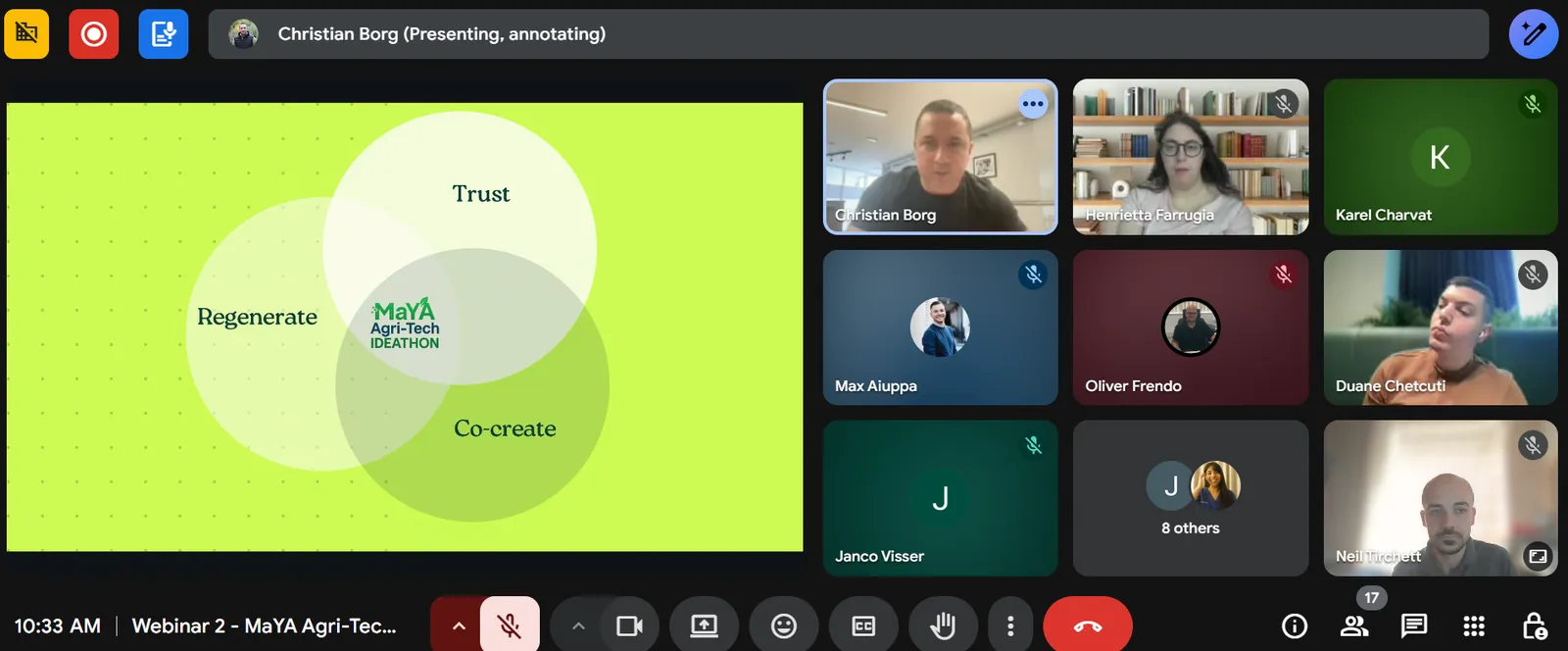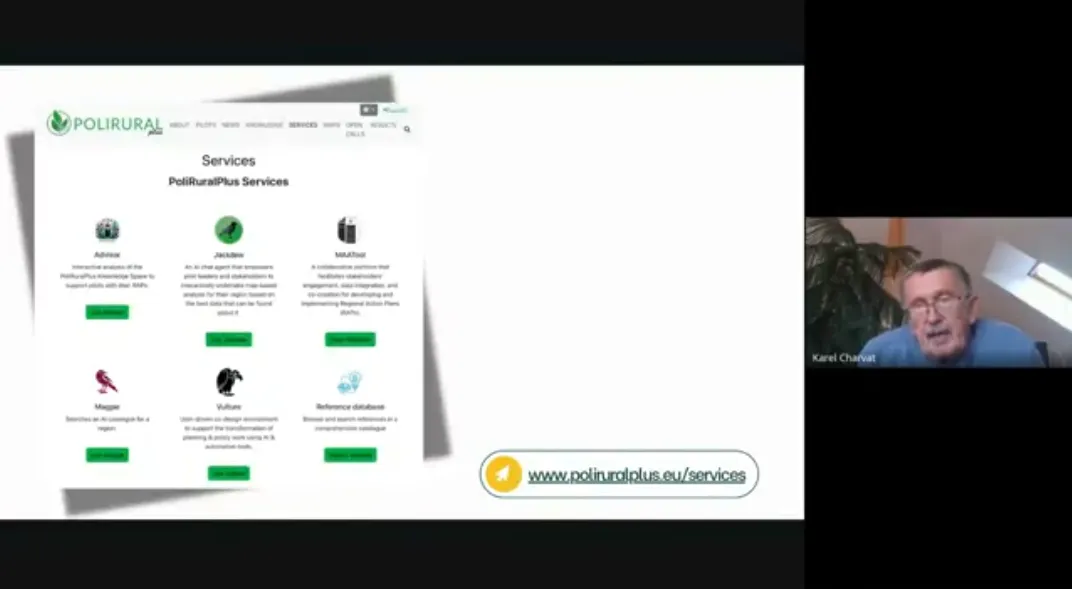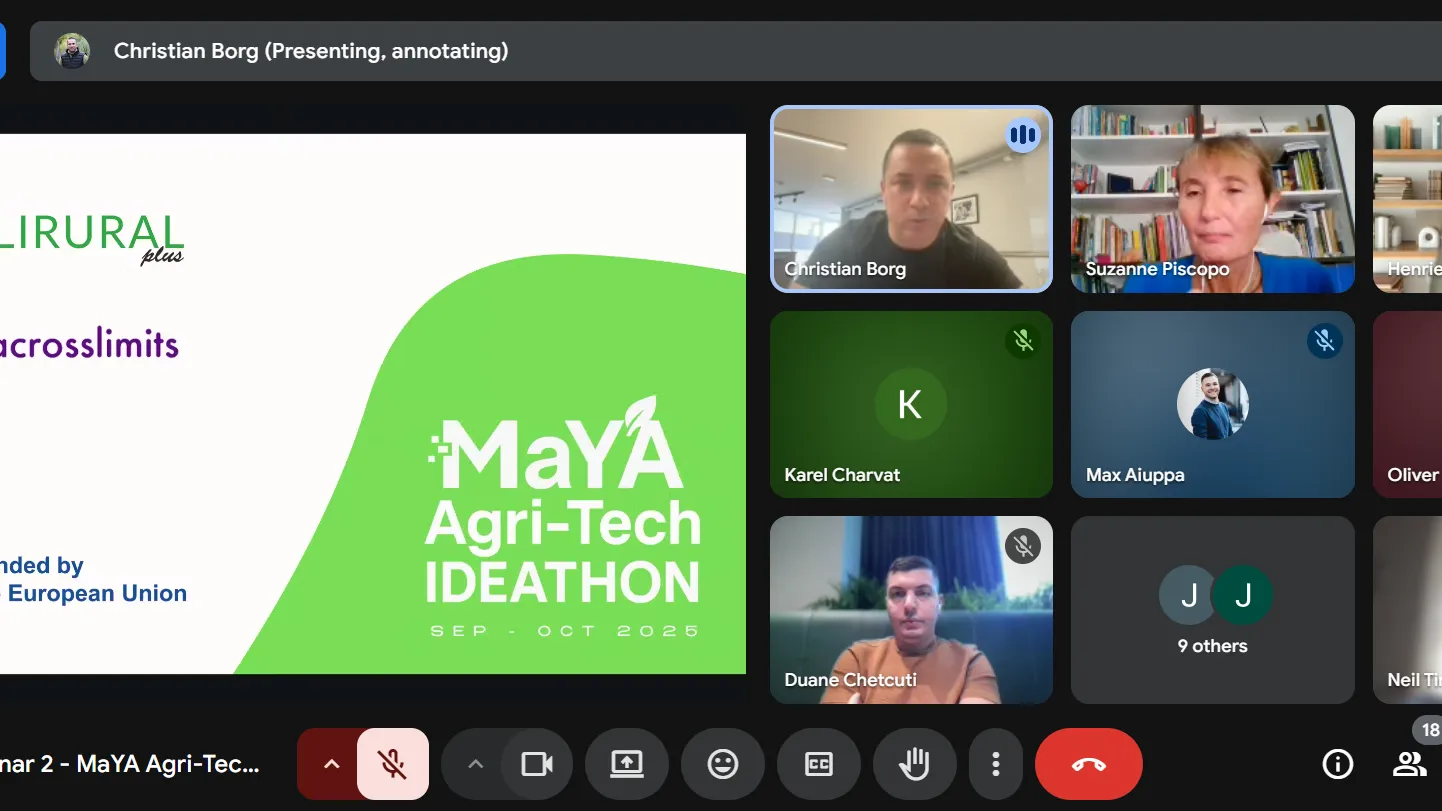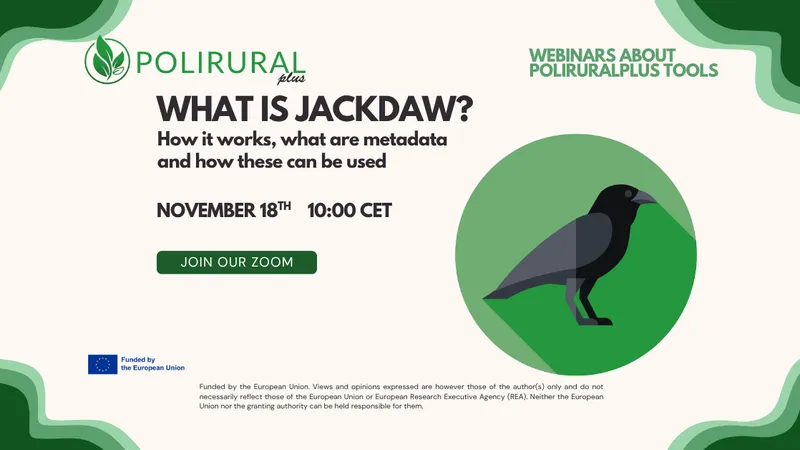Building on the momentum of its successful first session, the second MaYA Agri-Tech Ideathon webinar provided a deeper dive into Malta’s agricultural challenges and set the stage for ideation. The discussion brought together farmers,youths, agri-entrepreneurs, technologists, educators to address Malta’s key agricultural challenges through innovation and collaboration, laying groundwork for collaborative problem-solving.
The event forms part of Malta’s ongoing journey within PoliRuralPlus Pilot 9, which focuses on sustainable rural development through digitalisation, multi-actor participation, and stronger rural-urban linkages.
Themes & Challenges Presented
During the webinar, organisers presented three central challenge areas that the Ideathon seeks to address — each grounded in Malta’s agricultural and rural-urban context. These are:
Access to Agricultural Land
Market Access & Digital Integration
Climate & Water Resilience
These thematic blocks were not just hypothetical framing — participants were encouraged to map real problems they see on the ground and begin sketching possible interventions.
From Challenges to Collaborative Thinking
The session followed the structure of the MaYA Agri-Tech Ideathon themes — land access and use, digital transformation and market access, and climate resilience — while giving space for open dialogue on how technology, governance, and community engagement can work together.
A key point of discussion revolved around land management and access. Participants noted that while Malta is introducing new legislation to ensure land is used for genuine farming purposes, similar European experiences highlight how taxation and ownership transfer can discourage continuity of farming across generations. Addressing such barriers is crucial for keeping farmland productive and ensuring young people can enter the sector sustainably.
On market access, participants agreed that the digital transition offers new opportunities — from centralised resource databases for supplies and irrigation, to online marketplaces connecting farmers and consumers directly. However, several contributors highlighted that digital tools alone are not enough. Farmers need accessible education, cooperative structures, and trust-based partnerships to strengthen marketing, logistics, and technology adoption.
Discussions also emphasised that cooperatives play a pivotal role in bridging gaps between farmers and markets. There was consensus that government support and transparent governance models are essential for cooperatives to thrive. This includes fair profit margins, clear oversight, and mutual trust among all members of the value chain.
A further theme explored was the integration of technology and knowledge exchange. Participants discussed ideas for short supply chain models inspired by “veg box” systems and open mapping platforms, linking producers with local restaurants, retailers, and even research institutions. Such initiatives can help reduce food waste while fostering collaboration between academia and practitioners.

The Role of Technology and the PoliRuralPlus Connection
The conversation also connected directly to ongoing innovation in PoliRuralPlus. Karel Charvat from Plan4all, a partner in the Poliruralplus project demonstrated how the project’s digital ecosystem, including tools like the PoliRuralPlus Advisor and Jackdaw. These can support better data use, local insight generation, and participatory foresight. These tools integrate spatial data, legislation, and local knowledge to help decision-makers answer practical questions such as:
“Can my area support a short supply food chain?” or “What are the optimal structures for local agritourism?”
The Malta pilot team noted that such technology can empower cooperatives and local actors to plan collectively, make data-driven choices, and engage confidently in digital transformation. However, participants also pointed out that technology uptake depends on building trust and accessibility - from reliable data infrastructure and 5G coverage in rural zones to dedicated “technology brokers” who can translate digital potential into everyday practice.
Water scarcity and climate change remained recurring topics. The session highlighted recent national initiatives to improve irrigation efficiency and support water use on agricultural land - essential steps toward climate-resilient production. Yet, participants also raised questions about the long-term feasibility of these measures, given ongoing concerns about fairness and limited equity in how water resources are allocated. Participants also stressed the need for a balanced approach that rewards sustainability without overburdening farmers already managing heavy workloads.

Changing Mindsets and Preparing for the Ideathon
A major takeaway from the webinar was that innovation in agriculture is not only technical but also cultural. Participants recognised that traditional mindsets particularly the “do-it-alone” attitude must evolve toward collaboration and shared value. Stronger partnerships between farmers, cooperatives, universities, and policymakers were seen as the foundation for a more resilient sector.
As one educator noted, changing consumer expectations and increasing awareness of health and sustainability are driving shifts in demand. Farmers and producers who adapt to these trends through diversification, transparency, and digital marketing will be best positioned for the future.
The discussions set an energetic tone for the upcoming MaYA Agri-Tech Ideathon event, where participants will transform these reflections into practical solutions and prototypes. Teams are now finalising ideas that range from digital land registries and cooperative logistics systems to data-driven market transparency tools.
👉 Follow the journey on the PoliRuralPlus blog and MaYA Foundation website as Malta moves from ideas to action toward a smarter, fairer, and more sustainable agri-tech future.
What’s Next & How Participants Will Move Forward
With a clearer sense of challenge framing and collective energy, the planning team and participants are preparing for the next phases:
- Team formation & idea refinement — Participants are encouraged to crystallise concept proposals, align on problem-solution fit, and form teams ahead of the in-person Ideathon.
- Mentor support & validation — Technical experts, domain mentors, and agritech advisors will be on hand to help teams validate, pivot, or expand their ideas in the lead-up to the event.
- Ideathon execution — The in-person ideation session will include pitch rounds, networking, and selection of top ideas.
- Linking ideas to fruition — The best proposals may gain opportunities for further development, pilot deployment, or integration into Maltese or European rural innovation frameworks.
Through this process, the Ideathon moves beyond ideation — it becomes a concrete mechanism for innovation-grounded regional development, tightly woven with the objectives of PoliRuralPlus in Malta.
👉 Stay tuned for the upcoming final information, summarising outcomes, winners, and the implications for Pilot 9 and Malta’s rural future.




Existující komentáře